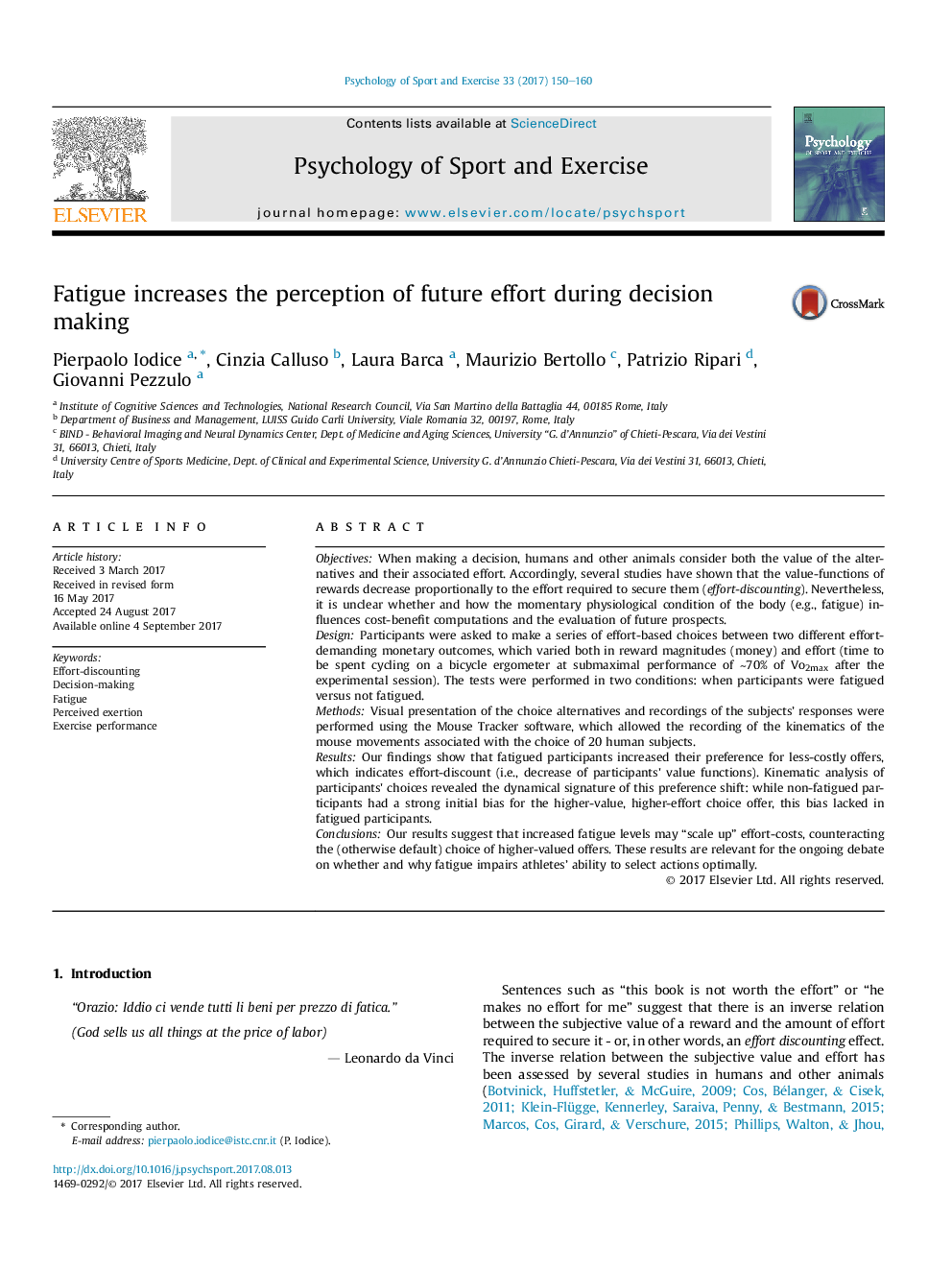| کد مقاله | کد نشریه | سال انتشار | مقاله انگلیسی | نسخه تمام متن |
|---|---|---|---|---|
| 5036528 | 1472094 | 2017 | 11 صفحه PDF | دانلود رایگان |
- Physiological condition of the body influences the subjective value of choice offers.
- Physiological effort downscales the subjective value of monetary rewards.
- The subjective value of choices is adjusted to correctly reflect fatigue-scaled effort levels.
- Effort and fatigue based information are part and parcel of the decision process.
- Mouse kinematics reflects the fatigue-induced scale up of the effort cost.
ObjectivesWhen making a decision, humans and other animals consider both the value of the alternatives and their associated effort. Accordingly, several studies have shown that the value-functions of rewards decrease proportionally to the effort required to secure them (effort-discounting). Nevertheless, it is unclear whether and how the momentary physiological condition of the body (e.g., fatigue) influences cost-benefit computations and the evaluation of future prospects.DesignParticipants were asked to make a series of effort-based choices between two different effort-demanding monetary outcomes, which varied both in reward magnitudes (money) and effort (time to be spent cycling on a bicycle ergometer at submaximal performance of â¼70% of Vo2max after the experimental session). The tests were performed in two conditions: when participants were fatigued versus not fatigued.MethodsVisual presentation of the choice alternatives and recordings of the subjects' responses were performed using the Mouse Tracker software, which allowed the recording of the kinematics of the mouse movements associated with the choice of 20 human subjects.ResultsOur findings show that fatigued participants increased their preference for less-costly offers, which indicates effort-discount (i.e., decrease of participants' value functions). Kinematic analysis of participants' choices revealed the dynamical signature of this preference shift: while non-fatigued participants had a strong initial bias for the higher-value, higher-effort choice offer, this bias lacked in fatigued participants.ConclusionsOur results suggest that increased fatigue levels may “scale up” effort-costs, counteracting the (otherwise default) choice of higher-valued offers. These results are relevant for the ongoing debate on whether and why fatigue impairs athletes' ability to select actions optimally.
Journal: Psychology of Sport and Exercise - Volume 33, November 2017, Pages 150-160
